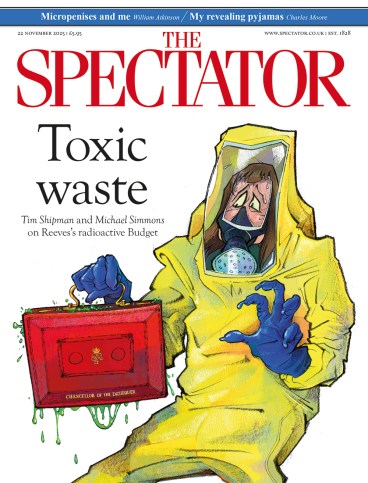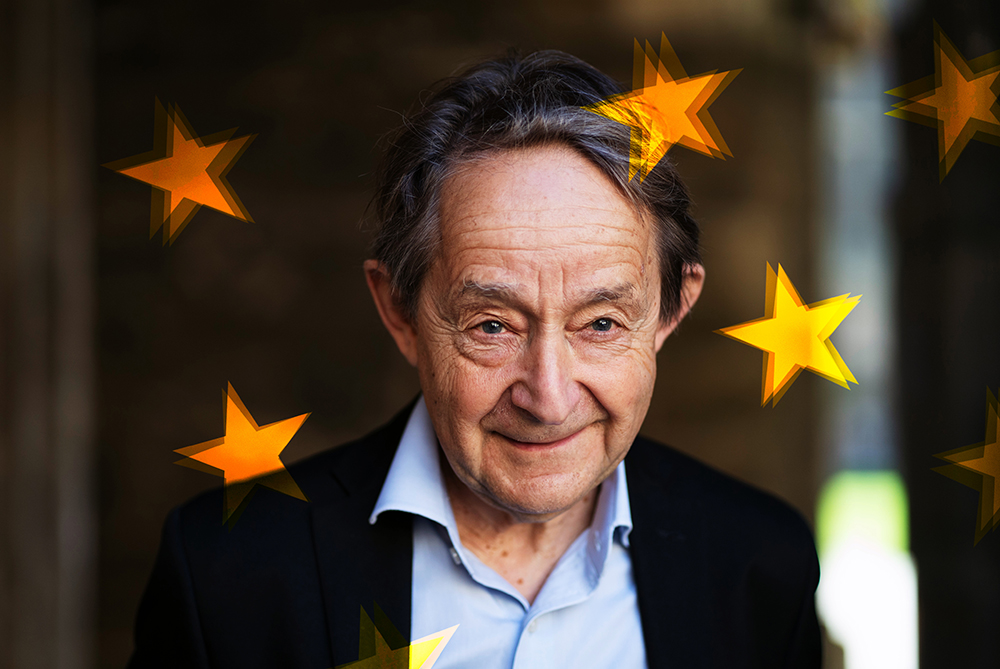
Cannabis smoke lingering along the sidewalks of Washington D.C. was the most palpable fruit of liberty since my last visit to the US capital. I’m in town to give a talk at Britain’s dazzling Lutyens Residence about the evergreen ‘special relationship’ ahead of the US’s 250th anniversary next July. Acting ambassador James Roscoe has stepped up with aplomb to fill Peter Mandelson’s big shoes, aided by his renaissance wife, the musician, author and broadcaster Clemency Burton-Hill. America’s anniversary will fall on the watch of its 47th President. The Republic’s first four incumbents, George Washington, John Adams, Thomas Jefferson and James Madison, inspired by some of the greatest minds of their and any age David Hume, John Locke and Jean-Jacques Rousseau, made the new country. The anniversary is a vital opportunity for re-dedication to their enduringly important ideas, not just an excuse for contemporary celebration.
The 80th anniversary of the end of the second world war focused more on victory than the ideals for which it was fought. Remembrance Week was wonderfully dignified. But was it too… backward-looking? From east to west, democracy, liberty from oppression and the rule of law – for which the war was waged – are all in retreat, while anti-Semitism is waxing.
My book The Path of Light, published last month, describes my walk through Germany, the Czech Republic and Poland to Auschwitz in search of heroes who stood up against dictatorship. As I walked along the rivers Rhine, Danube, Elbe and Oder, I heard from those traumatised by the resurgence of anti-Semitism. In the Czech Republic, anger is still raw at the betrayal of their country by Neville Chamberlain in 1938 and destabilisation today by Russia. In Poland, I heard fury at the betrayal by Britain entering the war in 1939 to defend the country’s neutrality to leave it in 1945 to the Soviets and 45 years of brutality. My walk, which will finish on the Ukraine front line, will create a ‘path of peace’ across Europe, along which all can walk to discover what we share in common rather than what divides us.
That same passion is motivating another project to mark the tenth anniversary of the Brexit referendum next June: an edited book with a diverse cast of authors. The truth about Brexit is that neither the disaster predicted by Remainers nor the benefits hoped for by Brexiteers have transpired. At best it’s been a score draw. I remain sad we left the EU, for all its flaws, having taken 50 groups to hear the Last Post ceremony performed under the Menin Gate at Ypres, and believing the EU our best bet to prevent future war. But I regret still more my anger and my intolerance over Brexit. Mistakes have been made on all sides but gone is the time for pointing the finger. Pulling together to make a success of this peculiarly British muddle is the best formula for the next ten years.
Another week and more bad news for the government. The Prime Minister is First Lord of the Treasury. Helping to manage the national finances is the office’s most fundamental job. Until Robert Peel in the 1840s, the PM largely ran the Treasury himself. Keir Starmer has lost control of the economy and politics. He may be hardworking and intelligent but came in ignorant of the office and needed tutoring on how to be Prime Minister. Instead, he appointed the wrong people as his most senior aides, then allowed them to be briefed against – unforgivable in any leader. To succeed as PM is not impossible: but there are rules to maximise, if not guarantee, the chances of success. Clarifying these is one reason we are creating a permanent Museum of the Prime Minister in Westminster, which would explore the achievements and failures of our leaders. Providing Britain with a platform to be proud of the PM is another core motive. Britain should congratulate itself for creating the office of PM, now copied across the world.
Britain should be equally proud of the BBC: the most trusted media outlet in the US, as elsewhere. A minority of employees with partisan views and poor professional standards have let it down. But the endless battering from elements on the right imperil its future and its global reputation. The BBC, like Downing Street, the civil service and the criminal justice system, are ripe for smart reform, not trashing.
AI is not helping the cause. Jonathan Sacks, the former chief rabbi who died five years ago this month and whose official biography I’m writing, was one of the first to spot the risks. If not employed wisely, AI will infantilise us all, like cannabis is doing to partakers, whether in Washington or across the free world.
Anthony Seldon’s The Path of Light: Walking to Auschwitz is out now.








Comments